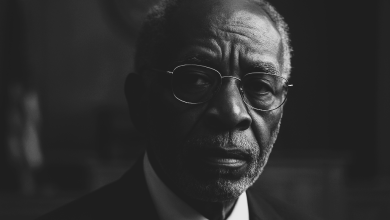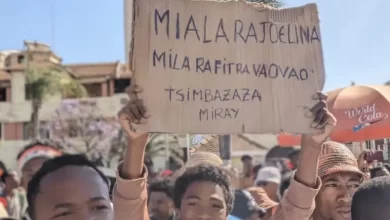African Union’s Legal Dilemma: Can It Hold Rwanda Accountable for the DRC Crisis?
By: Kayode Mike-Guest Contributer

The African Union (AU) Summit in Addis Ababa this February was overshadowed by the escalating crisis in the Democratic Republic of Congo (DRC), where M23 rebels, allegedly backed by Rwanda, have seized key territories. While the AU has historically promoted African-led solutions to conflicts, its legal framework is being tested: Can the AU legally hold Rwanda accountable for its role in the DRC crisis?
A Legal and Sovereign Violation?
The crisis in eastern DRC is not just a political and security issue—it has deep legal implications. Rwanda has been accused of violating DRC’s territorial sovereignty by supporting M23 rebels, an act that contravenes:
- The AU Constitutive Act (Article 4) – Prohibits member states from interfering in the affairs of another.
- The UN Charter (Article 2(4)) – Outlaws the use of force against another state’s territorial integrity.
- International Humanitarian Law – Holding states responsible for aiding armed groups that commit war crimes.
Despite repeated warnings and international reports pointing to Rwanda’s involvement, Kigali has denied all allegations. The question remains: Can the AU legally act beyond diplomacy?
Expert Opinions: Is the AU Capable of Legal Enforcement?
Legal and geopolitical analysts remain skeptical about the AU’s ability to hold Rwanda accountable.
Prof. Makau Mutua, Kenyan Legal Scholar & Human Rights Expert
“The AU has a robust legal framework on paper, but enforcement remains its greatest weakness. Unless it backs legal mechanisms with real political will, rogue states will continue to act with impunity.”
Dr. Solomon Dersso, Former Chairperson of the African Commission on Human and Peoples’ Rights
“The principle of non-interference has often protected powerful states within the AU. Rwanda’s alleged involvement in the DRC is a textbook case where African legal institutions should step up, yet they hesitate due to political complexities.”
AU’s Legal Tools: What Can Be Done?
The AU has legal mechanisms to address state aggression, but its enforcement power remains weak. Some of the possible legal avenues include:
1. Sanctions Under the African Peace and Security Architecture (APSA)
- The AU Peace and Security Council (PSC) can impose economic, political, or travel sanctions on Rwanda.
- However, enforcement is uncertain due to political alliances and Rwanda’s influence in the region.
2. Referral to the African Court on Human and Peoples’ Rights
- The DRC can file a case against Rwanda for sovereignty violations and human rights abuses.
- Case Reference: African Commission on Human and Peoples’ Rights v. Libya (2013)
- The AU held Libya accountable for human rights abuses under Muammar Gaddafi. However, enforcement was limited due to Libya’s internal crisis.
- The challenge? Rwanda withdrew its declaration allowing individuals and NGOs to sue it at the court.
3. International Justice: Taking Rwanda to the ICJ or ICC
- The International Court of Justice (ICJ) can handle disputes between states if the DRC sues Rwanda.
- Case Reference: Nicaragua v. United States (1986)
- The ICJ ruled that the U.S. had violated international law by supporting Contra rebels in Nicaragua, a parallel to Rwanda’s alleged role in the DRC.
- The International Criminal Court (ICC) could investigate Rwandan officials and M23 commanders for war crimes.
- Case Reference: Prosecutor v. Thomas Lubanga (ICC, 2012)
- Lubanga, a former Congolese rebel leader, was convicted of recruiting child soldiers, similar to allegations against M23 rebels.
Will the AU Act, or Will Diplomacy Prevail?
Despite these legal avenues, history suggests that the AU prefers political solutions over legal action. Its response has been mostly calls for dialogue, ceasefires, and peacekeeping missions, rather than taking bold legal steps against state aggression.
However, with the humanitarian crisis worsening and regional stability at stake, the AU’s credibility is on the line. If it fails to act decisively, it risks being seen as a toothless institution incapable of enforcing its own laws.
A Test for Africa’s Legal Framework
The AU’s handling of the DRC-Rwanda crisis is a defining moment for Africa’s legal and diplomatic future. If the AU fails to apply legal mechanisms, it could set a dangerous precedent for future conflicts where states act with impunity. The world is watching—will Africa uphold justice, or will legal frameworks remain just words on paper?




